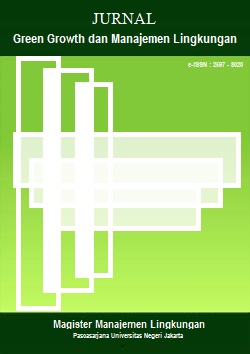DAMPAK POST-SUBURBANISASI DAN PERTUMBUHAN PERKOTAAN DI KAWASAN PINGGIRAN METROPOLITAN JABODETABEK TERHADAP KERENTANAN BENCANA BANJIR
DOI:
https://doi.org/10.21009/jgg.071.01Keywords:
post-suburbanisation, flood, Jabodetabek, ordinal regressionAbstract
Urban sustainability is facing serious challenges both from internal and from the outside. The influence of globalization has driven urban transformation into a post-suburban form, but surprisingly, the effect of such transformation on the sustainability of cities in the context of disaster is still debated. This study aims to determine the impact of the post-suburbanization process on the occurrence of floods in the suburbs of Metropolitan Jabodetabek. This is done by building an ordinal regression model using comparison of PODES 2005 and 2014 data at the village level. The results shown that in that period and afterwards, the growth of Jabodetabek increasingly leads toward suburban. In the new urban spatial structure, the environmental quality around the newly developed sub-centers in the west and eastward of Jakarta has been degraded. Such situation indicates that the changes in urban spatial structures also contribute to the declining. The growth of population density and built land area in the growing Jabodetabek suburban area will be followed by an increase in environmental degradation threat characterized by opportunities for greater floods. The post-suburbanization process has an impact on the declining ecological function through urbanization and land use change so that development planning around the suburbs needs to pay more attention to sustainability through efforts to maintain the functioning of river ecosystems.



